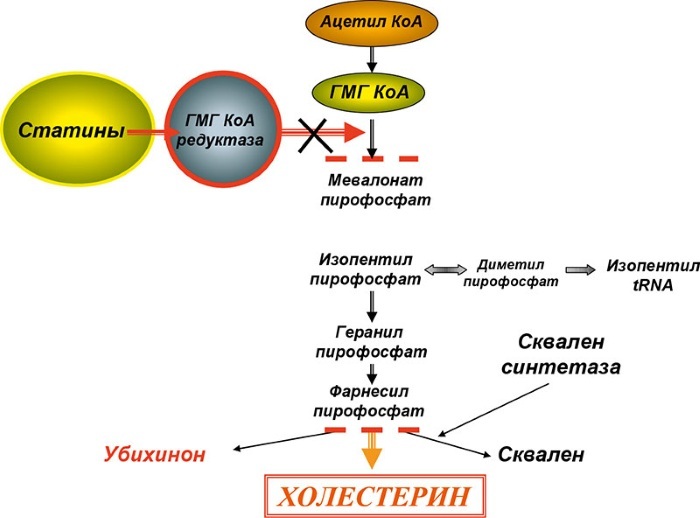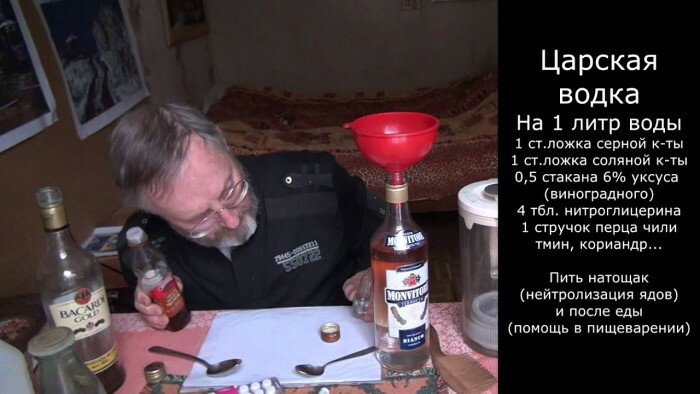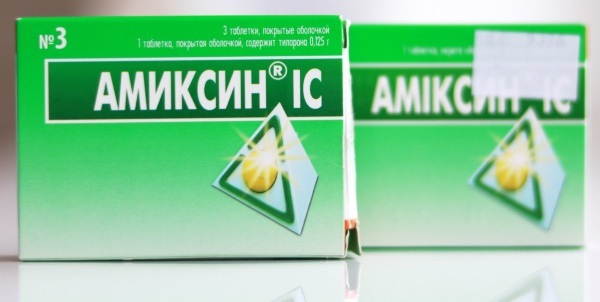Content
- Release form and composition of the drug
- Pharmacological properties
- Pharmacodynamics and pharmacokinetics
- Indications for use
- Contraindications
- At what age can the drug be used in children?
- Instructions for use, dosage
- Side effects
- Overdose
- special instructions
- Drug interactions
- Analogs
- Terms, conditions of sale and storage
- Price
- Homeopathy Videos
In the field of treatment of acute respiratory viral infections, the anti-inflammatory agent Spongia, which is active used in homeopathy. This drug is a powder obtained from an ordinary sea sponge. The drug has a large list of indications for use, as it copes well with diseases of the upper respiratory tract, and also improves the functioning of the cardiovascular system and thyroid glands.
The drug has a bronchodilator and expectorant effect. To obtain a homeopathic remedy, the sea sponge is divided into several parts, then fried over low heat. The resulting powder is used for the preparation of grits and alcohol tinctures. Before using the product, it is recommended to consult a doctor who will prescribe a comprehensive examination of the body to make sure there are no contraindications.
Release form and composition of the drug
Spongia - homeopathy (indications for the use of the drug include pathologies of the thyroid gland, which are accompanied by the development of complications from work of the cardiovascular system), allowing you to cope with diseases of the respiratory tract and genital organs with minimal risk of side effects reactions.
The remedy is especially effective on persistent tumor enlargement of the thyroid gland. The drug is produced in the form of powder and granules. For the preparation of tinctures based on vodka or alcohol, Spongia is most often used in powder form.
The preparation contains the following components:
- Silica.
- Iodine.
- Carbonic acid salt of lime.
- Various compounds of organic substances.
- Bromine.

Spongia is a highly effective homeopathic remedy, but its use must be approached with caution. It is forbidden to self-medicate, since only a doctor can assess the feasibility of using the drug for a specific patient.
Pharmacological properties
Spongia is a complex homeopathic remedy that contains various natural ingredients.
The drug has received great demand in otolaryngology, since if the recommended treatment regimen is followed, any type of cough can be overcome, significantly improving the patient's condition. Under the influence of a homeopathic medicine, the viscosity of the sputum decreases, and it also liquefies. This clears the airways of accumulated mucus.
The drug Spongia has the following pharmacological properties:
- Eliminates dry mucous membranes.
- Normalizes sleep.
- Increases resistance to stress.
- Helps to overcome asthma attacks in the presence of pathologies of the heart valves or airways, due to which the patient is worried: cough, general malaise, depression.
- Increases the body's endurance.
- Reduces the likelihood of painful symptoms during menstruation.
- Normalizes the patient's condition with a history of upper respiratory tract diseases.
To achieve a positive therapeutic effect, the attending physician must draw up an individual scheme for the use of the homeopathic remedy for the patient.
Pharmacodynamics and pharmacokinetics
Spongia - homeopathy (indications for the use of the drug indicate that it can be used to relieve inflammation of the laryngeal mucosa, when rapid deterioration of the patient's well-being is associated with the development of a cold or an infectious disease: whooping cough, measles, scarlet fever), which positively affects all organs and systems of patients of different ages.
The preparation based on sea sponge is indispensable in the presence of pathologies of the thyroid gland and ovaries. Regular use of Spongia improves the condition of the larynx and trachea.
Laboratory studies have shown that a homeopathic remedy helps to cope with respiratory diseases when patients are worried about:
- runny nose;
- lacrimation;
- heat;
- chills;
- frequent bouts of coughing.
To achieve the maximum therapeutic effect, it is recommended to use various tinctures based on Spongia powder for regular rubbing.
The homeopathic remedy does not have a negative effect on the work of internal organs, the likelihood of adverse reactions is practically excluded. The components of Spongia are excreted naturally (along with feces, urine).
Indications for use
Spongia has received great demand in homeopathy, as this remedy is characterized by a wide spectrum of action and a minimum number of adverse reactions. The drug can be prescribed for those patients who have been diagnosed with diseases of the upper respiratory tract, genitourinary or cardiovascular system.
Laboratory studies have shown that sea sponge powder has a wide spectrum of action, as it has a complex positive effect on all internal organs of adults and children. Indications for the use of a homeopathic remedy also include neuropsychiatric diseases. In 99% of all cases
Spongia helps to cope with diseases and conditions:
- Thyroid pathology.
- Bronchial asthma attacks.
- Acute headache that is localized in the forehead.
- Viral infections accompanied by dry cough without sputum discharge.
- Endocarditis.
- Dry cough, which is triggered by an acute form of bronchitis.
- Hoarseness or complete loss of voice.
- Frequent dizziness.
- Diagnosed tuberculosis.
- Diseases of the gastrointestinal tract.
- Sleep disturbance.
- Unreasonable feeling of anxiety, depression.
- Hot flashes.
- Diseases of the genitourinary system.
- Profuse, painful menses.
Before using a homeopathic remedy, you need to carefully study the instructions attached to it and consult with your doctor. If, when undergoing a therapeutic course after 5-7 days, the patient does not feel positive changes in his state of health, then it is recommended to seek advice from a doctor who will prescribe a more suitable treatment.
Contraindications
Not all patients can use Spongia, since in some cases this drug can provoke the development of adverse reactions.
Among the main contraindications to the use of a homeopathic remedy, the following diseases and conditions can be distinguished:
- Hypersensitivity of the body to the components of the drug.
- Intolerance to sucrose, fructose or glucose.
- Children's age (up to 1 year).
- The presence of alcohol addiction.
In isolated cases, the drug Spongia can worsen the well-being of patients with diabetes mellitus, which is why the period of use of this homeopathic remedy is recommended to be under the supervision of a qualified doctor.
At what age can the drug be used in children?
Spongia has received great demand in pediatrics. This drug helps to strengthen the child's immunity without the risk of adverse reactions. It is homeopathy that is most often used by parents to treat cough in children, since for of the therapeutic course, drugs are used that contain safe for a growing organism natural ingredients.
The drug Spongia can be used to treat children from 1 year old. Beforehand, it is imperative to consult a pediatrician, who, based on the collected history, will determine the safety and effectiveness of the forthcoming treatment with a homeopathic remedy.
Instructions for use, dosage
If, for the treatment of diseases of the upper respiratory tract (eg, laryngitis, bronchitis, pharyngitis), you will use Spongia in powder form, then you must first mix it with alcohol or vodka. To obtain effective rubbing, the product should be infused for 4-8 days.

When using Spongia in the form of granules, adults and children over 12 are recommended to use the drug on the basis that for each year of the patient's life, it is necessary to take 1 granule. The product should be placed under the tongue and slowly dissolve in 30 minutes. before meals. If desired, the drug can be dissolved in 30 ml of still water.
It is forbidden to give more than 1-2 granules of the drug to a child aged 1 year. You need to take the drug once a day. The duration of the therapeutic course is determined by the attending physician on an individual basis, since all depends on the patient's condition, age and weight, as well as on the nature of the diagnosed diseases.
Side effects
Subject to the recommended dosage and frequency of use of the drug, the likelihood of adverse reactions is practically excluded. In isolated situations, the agent can provoke the development of an allergic reaction.
In this case, the patient will be disturbed by the following symptoms:
- Increased body temperature.
- Itching and burning of the skin.
- Quincke's edema.
- Dermatitis (skin disease caused by external or internal (physical, chemical, biological) agents).
In the event of adverse reactions, there is no need to stop taking the drug, since all symptoms in 99% of cases go away on their own within 1-3 days. For consultation with the attending physician, it is recommended to contact those patients whose condition is rapidly deteriorating or concomitant complications arise.
Overdose
Spongia - homeopathy (indications for use, contraindications and pharmacological properties of the drug should first of all be studied in patients who have been prescribed a long-term complex treatment of inflammation of the inner lining of the heart), which allows to achieve a positive therapeutic effect in the fight against diseases of internal organs, as well as improve psycho-emotional condition.
In medical practice, cases of overdose with this homeopathic remedy have not yet been recorded.
But the manufacturer of Spongia admits that in case of a systematic violation of the recommended frequency of use of the drug and exceeding the permissible dosage in a patient the following symptoms may occur:
- Nausea, vomiting.
- Stool disorder.
- Allergic reaction.
- Headache.
- General malaise.
- Confusion of consciousness.
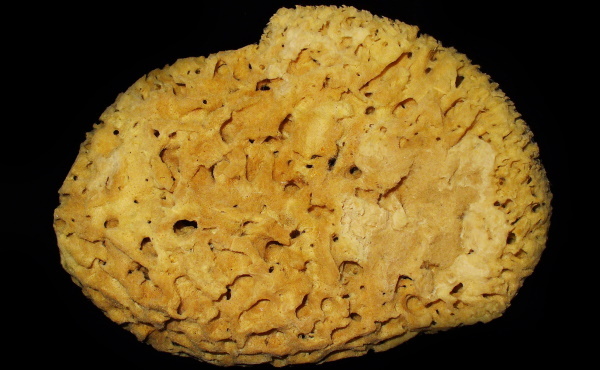
If symptoms of an overdose occur, it is recommended to refuse further use of the drug. In this case, it is recommended to contact your doctor, who, if necessary, will prescribe symptomatic treatment.
special instructions
In the annotation to the drug Spongia, the manufacturer indicated that this homeopathic remedy can be used in during pregnancy for the treatment of diseases of internal organs, as well as to combat coughs of various etiology. The medicine has a complex bronchodilator, expectorant and mucolytic effect on the body.
Homeopathy is actively used in relation to pregnant women and children. The only contraindication to the use of Spongia is the individual intolerance of the constituent components. If there is a history of diabetes mellitus, the appropriateness of the use of the drug should be assessed by an endocrinologist.
Spongia does not affect visual acuity and the speed of psychomotor reactions, due to which during the passage the therapeutic course, you can drive a car and complex mechanisms that require increased concentration attention.
Drug interactions
Spongia - homeopathy (indications for use and possible side reactions should be studied before undergoing a therapeutic course, since only if the recommended dosage of the drug is observed, it is possible to stop the inflammatory process in the testicular tissues, which was provoked by viral or bacterial pathogens, testicular injuries), which is a popular type of alternative medicine.
To combat chronic and acute forms of diseases in homeopathy, highly diluted drugs are used that contain actively an active substance that provokes the appearance in healthy people of symptoms that are as similar as possible to the symptoms of a certain disease in others patients.
The drug Spongia can be used concurrently with other medicines in order to stop much faster the existing inflammatory process, eliminate the symptoms of the diagnosed disease and improve the general condition sick. Only the attending physician can prescribe combined drug therapy, since self-medication is fraught with the occurrence of side reactions and complications.
Analogs
If there are contraindications to the use of the drug Spongia, or the therapy passed was ineffective, then the drug must be replaced. Previously, the patient should consult with the attending physician, who will prescribe a comprehensive examination of the body and, based on the collected anamnesis, will select a safe homeopathic means.
| Drug name | Description |
| Belladonna |
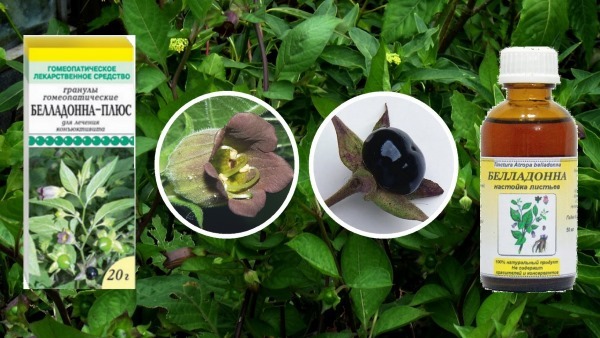 A homeopathic medicine that not only eliminates the symptoms of the disease, but also affects the causes of its occurrence. Among the indications for the use of this drug are: respiratory diseases, fever, acute headache, pathology of the genitourinary system and organs of vision, neurological illness, rheumatism. If the drug Belladonna is used at the initial stage of the development of the disease, then the onset of the inflammatory process can be prevented. For the treatment of pathologies in the stage of exacerbation, it is necessary to dilute 1-3 drops of Belladonna in 50 ml of water in the morning and in the evening. The dosage of the homeopathic remedy should be increased to 30-45 drops in the following cases: urinary incontinence, epilepsy, mental illness, frequent headaches, neuralgia. The duration of the therapeutic course is determined by the attending physician on an individual basis. |
| Aconite | It is an effective homeopathic medicine with antimicrobial, anti-inflammatory, antispasmodic, analgesic and narcotic properties. The drug is recommended for use in neuralgia, painful sensations in the joints and muscles, colds and rheumatism. Aconite is prescribed for bruises, fractures and dislocations, as well as sciatica, psoriasis and scabies. This drug can cause side reactions and should be used with caution. The dosage and frequency of use of the homeopathic remedy are determined by the attending physician on an individual basis. |
| Kalium bichromicum | The drug has anti-inflammatory properties. Kalium bichromicum is often included in complex therapy for the treatment of the following diseases: pharyngitis, chronic tracheitis, hepatitis, inflammation of the gastrointestinal tract. It is recommended to apply a homeopathic remedy within 60 minutes. before meals. Adults and children over 12 years old need to slowly dissolve 2 granules of the drug 4 times a day, placing them under the tongue. For the treatment of children from 1 to 12 years old, you can use a maximum of 3-5 granules per day. The standard therapeutic course is designed for 14 days. |
| Phosphorus | The drug is available in the form of granules and drops. Homeopathic remedy Phosphorus has indications for use: pathological damage to the structures of the brain, hypertension and frequent headache attacks, chorea, neuralgia and neurasthenia, paresis, convulsive states, diabetes mellitus, rheumatism, thrombocytopenic purpura, glaucoma. The drug should be taken within 60 minutes. before meals. To achieve a positive therapeutic effect, it is necessary to dissolve 2 granules of the drug 3-4 times a day. The therapeutic course should last 3-4 weeks. |
| Sepia | In the annotation to this homeopathic remedy, the following indications for use are indicated: stool retention, pathology of the genital organs, aching head pain, bronchitis, amenorrhea, postpartum depression, hair loss during hormonal changes in the body, varicose veins, exacerbation psoriasis. The main contraindication to the use of the drug is the individual intolerance of the constituent components. The treatment regimen is drawn up by the attending physician on an individual basis, since everything depends on the patient's condition, his age and the form of the diagnosed disease. |
| Conium | This remedy has received great demand in homeopathy, as it is effective in the fight against the following diseases and conditions: prostatitis, paresis upper eyelids, sclerosis of the cerebral vessels, swelling of the extremities, exudative diathesis, trigeminal neuralgia, sleep disturbance, bronchitis, seizures cough. Conium is contraindicated in children under 18 years of age, with hypersensitivity to the components of the drug, as well as during pregnancy and lactation. Granules are taken exclusively sublingually. The standard daily dose of the drug is 40 granules (you need to take 5 granules 8 times a day). The therapeutic course is designed for 30 days.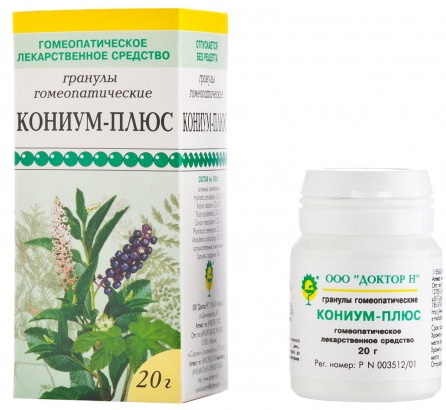
|
For effective treatment of acute and chronic diseases, the patient should be prescribed combined drug therapy. In 99% of cases, Spongia is well tolerated by the patient's body., but in the presence of hypersensitivity to the components of the drug, a safer analogue should be selected that will not provoke an allergic reaction.
Terms, conditions of sale and storage
Store the homeopathic remedy Spongia in a dry, well-ventilated place out of direct sunlight. The air temperature in the room should be between +15 and +25 C. The shelf life of the drug is 5 years from the date of release, which is indicated by the manufacturer on the package. After this period, the unused medicinal product must be disposed of.
Price
You can buy the drug Spongia at any regular pharmacy, as well as on the Internet. The remedy is in great demand in homeopathy, as it has a wide list of indications for use and is well tolerated by the body of patients of different ages. The average price of the drug varies from 191 to 450 rubles. The final cost of a homeopathic remedy largely depends on the region and the markup of the selected pharmacy chain.
Homeopathy Videos
School of Doctor Komarovsky:

